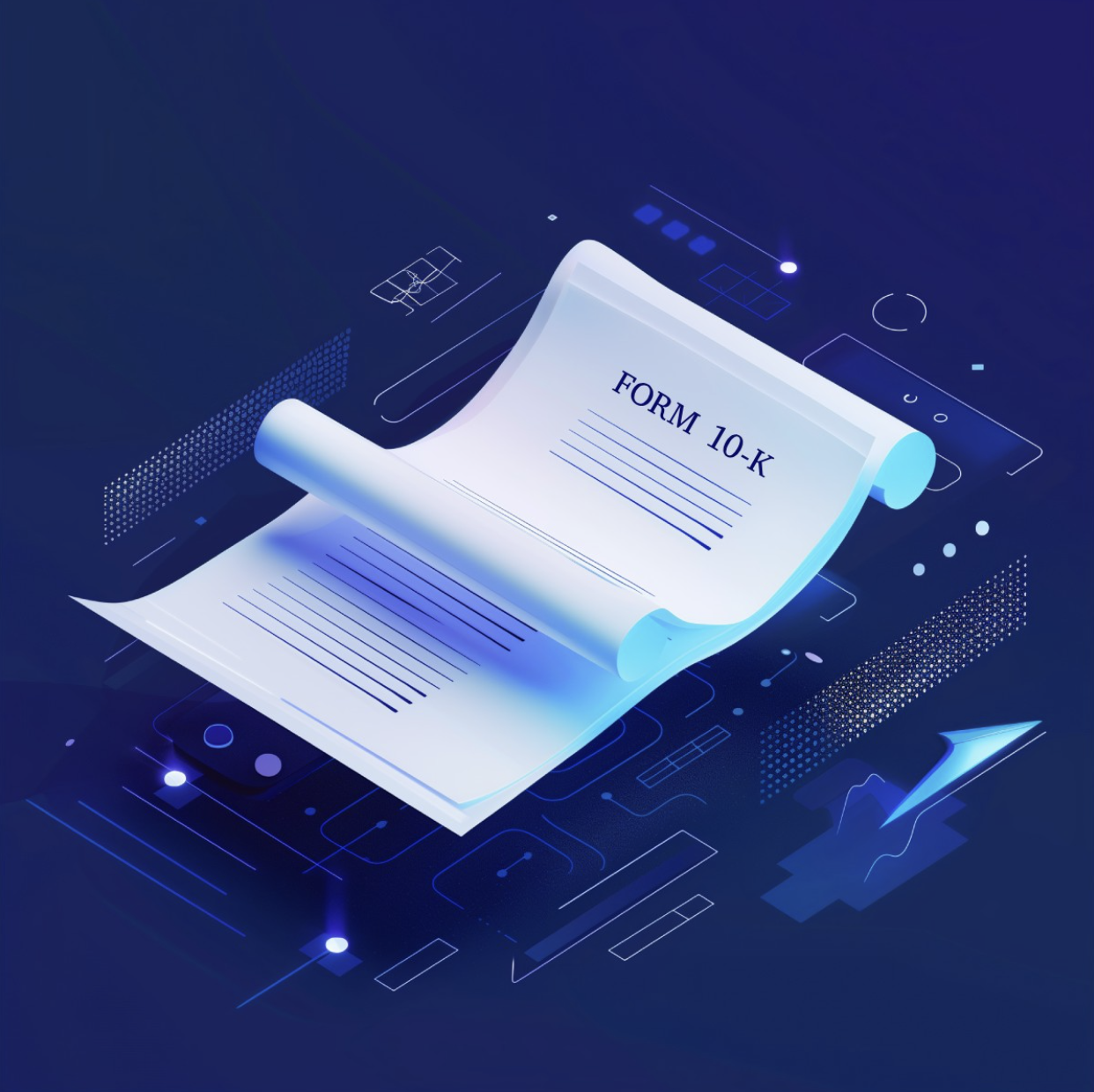How Insurance Companies Use AI: Key Insights from 10-K Filings

How Insurance Companies are Using AI: Insights Gleaned from their SEC 10-K Filings
Insurance companies are famously conservative, and for good reason—they deal with risk after all. But there's a new kind of risk they're starting to embrace: the risk of doing something interesting with artificial intelligence (AI). They’re now recognizing AI’s potential to revolutionize their operations and customer interactions.
This isn't just speculation; it's straight from the companies' SEC 10-K filings.
I’ve pored over and pulled quotes from the 10-K annual reports of ten publicly traded insurance companies to show how they’re investing in AI. UnitedHealth's recent filing suggests they're just waking up to the potential of AI, while CVS, who owns Aetna, has been quietly building an arsenal of AI-driven tools since 2019. Meanwhile, Lemonade is leveraging AI to disrupt traditional insurance models entirely.
They all realize AI can lead to unparalleled advancements and operational excellence, or ignoring it could spell obsolescence.
UnitedHealth Group
“We anticipate that fast-evolving AI/ML technologies, including generative AI, will play an increasingly important role in our information systems and customer-facing technology products,” says UnitedHealth in their 2023 10-K filing, their first 10-K to mention AI.
“New technologies have potential and power to improve and optimize operational processes and clinical outcomes.”
Berkshire Hathaway
The multinational conglomerate holding company that owns multiple insurance companies remains silent on the AI front. Not a single 10-K filing has mentioned AI. Warren Buffett told CNBC in an interview in April 2023, “I think it’s something I don’t understand at all.”
[Embed https://youtube.com/shorts/TVlHfNKz-LM?si=vs7Qn3tss6b0mLK8 here]
CVS
CVS, which owns Aetna, first mentioned AI in their 2019 10-K.
“The Company is making concerted investments in emerging technology capabilities such as voice, artificial intelligence and robotics to further automate, reduce cost and improve the experience for all of its constituents.”
Today, CVS uses AI in their Health Engagement Engine® technology, which connects pharmacies, retail clinics and health care professionals with synchronized data and proprietary analytics to find the best solution for each member. “The technology leverages assisted artificial intelligence to deliver insights to the business and bring automation to otherwise manual tasks.”
CVS’ acquisition of Oak Street Health in 2023 also came with an AI technology called Canopy.
“Canopy leverages artificial intelligence and machine learning capabilities to create and refine a clinical rules engine (predictive models and prescriptive algorithms) that informs care delivery and addresses hospital admissions and readmissions, medical costs and patient retention.”
Cigna
Cigna first mentioned AI back in their 2018 10-K and their 2023 10-K has a lot to say on it.
“We utilize these technologies today to analyze data and uncover patterns and insights to help improve outcomes, increase connectivity between the patient and the health care system, speed up administrative processes, and improve the overall member experience.”
They even have an “AI Center of Enablement” (COE). “Our AI COE focuses on Generative AI”, they explain.
“Exploring and implementing new and emerging technology opportunities enables us to improve efficiency via automation, reduce costs and enhance overall decision-making, all while providing real-time, personalized and connected experiences for our customers, patients, clients and provider partners.”
They also recognize the risk if they get AI wrong. “If we are unable to use AI/ML, or if regulators restrict our ability to use AI/ML for certain purposes, it could make our business less efficient, result in competitive disadvantages, and subject us to potential unfavorable business impacts.”
Elevance Health
First mentioning AI in their 2023 10-K, Elevance uses “AI to transform the way we operate our business and interact with consumers by driving improvements in efficiency and experiences and converting data into actionable insights.”
They’re also well aware of the risks. “Further, as connectivity of technologies advances, artificial intelligence and business processes supported by large language models that are used by businesses and consumers may not operate as expected or may lead to unintentional bias, discrimination and/or data exposure.”
Centene
Centene first mentioned AI in their 2021 10-K, bringing up how they use it for their NEST model. “Neighborhood, Environment and Social Traits (NEST) is a predictive model created by Centene, supported by artificial intelligence, using more than 200 geo-demographic characteristics as inputs that enables us to more proactively address risks and barriers to health that impact our members and the community as a whole”
Curiously, they didn’t bring up AI in their 2024 10-K. Their 2023 10-K, however, talks about how Apixio, a healthcare analytics company they acquired, uses AI: “Apixio offers, among other solutions, artificial intelligence technology that performs retrospective chart reviews for more accurate risk score submission to CMS.”
Humana
Humana hasn’t filed any 10-K annual reports mentioning AI, but in an 8-K titled “Humana Elects David T. Feinberg, M.D. to Board of Directors“ they mention his AI background:
“Dr. Feinberg served as Vice President of Google Health, where he led Google’s worldwide health efforts, bringing together groups from across Google and Alphabet that used artificial intelligence, product expertise and hardware to tackle some of healthcare’s biggest challenges, and was responsible for organizing and innovating Google’s various healthcare initiatives.”
Lemonade
Insurance startup Lemonade, which IPO’d in 2020, has 44 mentions of “artificial intelligence” in their 2023 10-K!
“We rely on artificial intelligence, telematics, mobile technology, and our digital platforms to collect data that we evaluate in pricing and underwriting our insurance policies, managing claims and customer support,” they say.
“Our architecture melds artificial intelligence with the human kind, and learns from the prodigious data it generates to become ever better at delighting customers and evaluating risk.”
MetroMile
The car insurance startup MetroMile was acquired by Lemonade in 2022. Their 2021 10-K explained how they use AI:
“Risk is managed through our technology, artificial intelligence, and data science, which we utilize to accurately determine the risk profiles of our customers. Our ability to manage risk is augmented over time as data is continuously collected and analyzed by our machine learning with the objective of lowering our loss ratios over time.”
They didn’t just use AI for risk profiles, but fraud detection too. “Our Detect module is an artificial intelligence, or AI, powered fraud detection tool trained to scan incoming claims in seconds and build a feedback loop with existing investigative experts.“
They boasted, “Metromile has also established itself as the industry leader in leveraging artificial intelligence and machine learning to improve the customer experience and lower loss ratios.”
The Road Ahead
While some, like Berkshire Hathaway, remain cautious or even skeptical, others are making substantial investments to harness AI’s potential. Companies like UnitedHealth, CVS, and Lemonade are spearheading this transformation by leveraging AI to enhance operational efficiency, improve customer interactions, and drive predictive analytics.
This divergence in strategies underscores the varying levels of readiness and adaptation within the industry.
The journey of integrating AI is not without its challenges—risks of regulatory restrictions, unintentional biases, and data security concerns loom large. However, the promise of AI to deliver unprecedented efficiencies, enhanced experiences, and ultimately revolutionize the insurance landscape is compelling.
As AI continues to evolve, its role in the insurance industry will expand and set new standards for operational excellence and customer satisfaction. For companies willing to embrace this change, the future holds immense potential for innovation and growth.
Limit AI is here to revolutionize your workflow.
Limit has built the State of the Art AI for insurance. Limit AI will summarize and compare your quotes, run your surplus lines taxes and fee calculations, identify coverage deficiencies, and do what you need to get your job done. Limit AI is extremely well-versed in all lines of P&C and highly skilled at analyzing your policies & quotes.
Our AI Assistant is built on Limit’s years of expertise as a commercial insurance wholesaler with hands on experience in all lines of P&C. Limit AI answers questions, drafts emails, and compares quotes & policies with substantially more rigor and attention to nuance than any other competitive AI product today.
Ready to get started? Join the waitlist by visiting limit.com/ai or email us at contact@limit.com.



